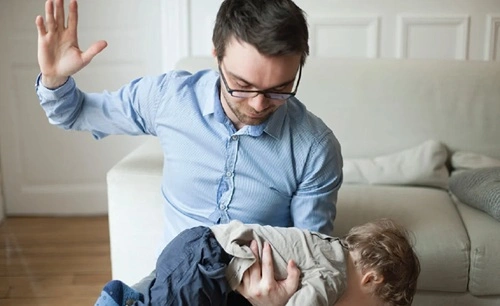Parenting can be stressful, and moments of frustration sometimes lead to actions parents later regret. But what happens when discipline crosses the line into potential abuse? In the United States, you can go to jail for slapping your child—depending on how hard the slap was, where it landed, and whether it caused injury. While the law allows parents to discipline their children, it also protects minors from physical harm. Here’s how the law draws that line and when a simple slap can turn into a criminal offense.

1. Parental Discipline vs. Child Abuse
Under U.S. law, parents have the right to reasonably discipline their children, including mild physical punishment in some cases. However, this right is limited by both state child abuse laws and federal protections.
Every state has statutes defining child abuse, and most follow a similar standard:
Physical punishment is legal only if it’s reasonable and causes no bodily injury.
A light slap intended to correct behavior might be legal. But if the slap leaves a bruise, welt, or mark, or causes the child pain, fear, or emotional trauma, it could be classified as physical abuse—a criminal act that can lead to arrest and prosecution.
2. What Makes a Slap Illegal
The difference between legal discipline and criminal assault often comes down to three key factors:
- Injury or Pain: If the child suffers visible marks, swelling, or any lasting pain, the act is more likely to be considered abuse.
- Age and Vulnerability: Younger or smaller children are more protected under the law, as even mild force can be more dangerous to them.
- Intent and Circumstances: If the slap is done in anger, revenge, or while the parent is out of control, prosecutors may view it as assault rather than discipline.
For example, slapping a teenager’s hand to stop them from touching a hot stove is vastly different from slapping a 5-year-old in the face during an argument. Context matters—but any physical strike to a child’s face or head is almost always viewed harshly by child protective services and law enforcement.
3. Legal Consequences of Slapping a Child
If authorities determine that a slap was abusive, the parent can face:
- Misdemeanor Assault or Battery Charges: Typically punishable by fines, probation, mandatory parenting classes, or up to one year in jail.
- Felony Child Abuse Charges: If the child suffers significant injury or the parent has a history of violence, penalties can include up to 5–10 years in prison, depending on the state.
- Loss of Custody or CPS Intervention: Child Protective Services may remove the child from the home temporarily or permanently.
- Protective Orders: A court could issue a restraining order limiting parental contact.
For example, in California, Penal Code § 273d makes it a crime to inflict corporal punishment that causes injury, carrying up to six years in prison for severe cases. Similar statutes exist in states like Texas, Florida, and New York.
4. Mandatory Reporting and Investigations
Teachers, doctors, and other professionals are mandatory reporters, meaning they are legally required to report any suspected child abuse. If someone witnesses or suspects you slapped your child, they may contact authorities.
Once reported, Child Protective Services (CPS) or local police will likely investigate. Even if no charges are filed, the case could remain on record, and repeated incidents may lead to more severe legal action.
5. Alternatives to Physical Discipline
Modern parenting experts and child psychologists generally recommend non-physical forms of discipline, such as:
- Time-outs or privilege removal
- Natural consequences (letting a child face the result of their actions)
- Calm communication and consistent boundaries
Not only do these methods avoid legal risk, but studies show they are also more effective in teaching long-term behavior and respect.
6. Final Thoughts
So, can you go to jail for slapping your child? Yes — if the slap is deemed excessive, harmful, or done in anger. U.S. law recognizes a parent’s right to discipline, but it does not tolerate violence or cruelty toward minors.
A single moment of frustration can lead to serious legal trouble, a criminal record, and the loss of parental rights. If you find yourself struggling with discipline or anger management, seek help from parenting counselors or support groups before it escalates into a criminal issue.
In short: discipline your child, but never in a way that could be seen as abuse. The line between the two can be thinner—and more dangerous—than many parents realize.

Our dedicated team gathers information from all the reliable sources to make the law accessible and understandable for everyone. We provide the latest legal news stories from across the country, delivered straight to you.
